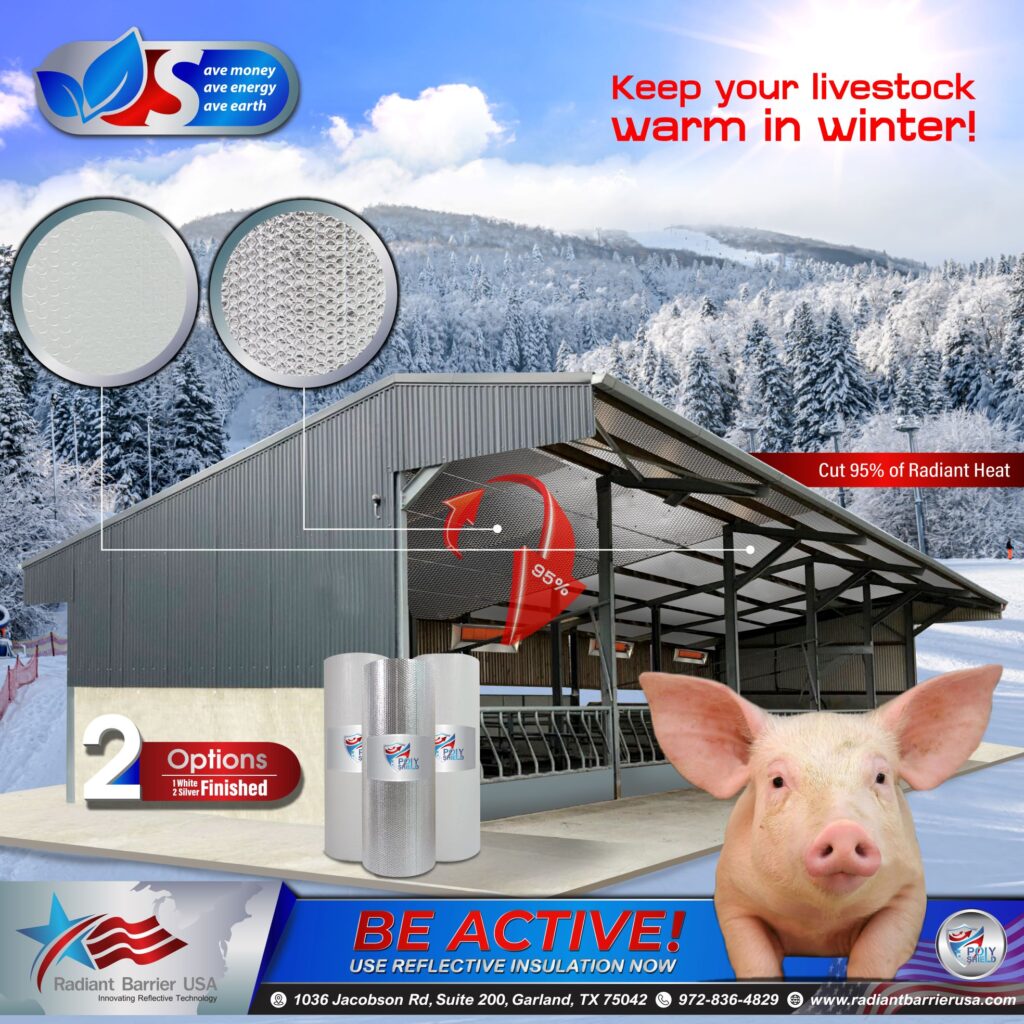Radiant barriers can offer several benefits for livestock in winter, particularly in cold climates. A radiant barrier is a material that reflects radiant heat, preventing its transfer from one place to another. Here are some potential benefits of using radiant barriers for livestock in winter:
Temperature Regulation:
Heat Retention: Radiant barriers can help retain the heat generated by the livestock and/or any heating systems (such as brooders or heaters) within the shelter, creating a warmer environment for the animals.
Energy Efficiency:
Reduced Heat Loss: By reflecting radiant heat back into the space, radiant barriers can reduce the amount of heat lost through the walls and roof, leading to energy savings.
Uniform Heat Distribution:
By reflecting the radiant heat generated by heating systems, the heat is dispersed more effectively across a broader area, ensuring improved distribution and uniformity of warmth within the shelter
Improved Comfort:
Warmer Environment: Radiant barriers contribute to creating a more comfortable and consistent temperature inside the shelter, reducing the risk of cold stress and improving the overall well-being of the livestock.
Health Benefits:
Prevention of Cold-Related Illnesses: Maintaining a warmer environment can help prevent conditions such as hypothermia and frostbite in livestock, promoting better health and productivity.
Cost Savings:
Reduced Heating Costs: By minimizing heat loss, radiant barriers can potentially lead to reduced heating costs for the livestock shelter, providing economic benefits for the farm.
Condensation Control:
Prevention of Condensation: Radiant barriers can help control condensation within the shelter, reducing the risk of dampness and mold growth, which can be detrimental to both livestock and infrastructure.
Increased Productivity:
Optimal Growth Conditions: Maintaining a more stable and warmer environment can positively impact the growth and productivity of livestock, leading to better weight gain and reproductive performance.
Environmental Considerations:
Lower Carbon Footprint: If radiant barriers contribute to energy efficiency and reduced heating requirements, they can indirectly lead to a lower carbon footprint associated with the energy consumption of the livestock facility.
Versatility:
Applicability to Various Structures: Radiant barriers can be installed in various types of livestock shelters, including barns, stables, and other enclosures, providing flexibility in their application.
Long-Term Durability:
Resistance to Wear and Tear: High-quality heavy duty (13mil) agri barrier materials are extremely durable and resistant to wear and tear, providing long-term benefits with minimal maintenance requirements.

